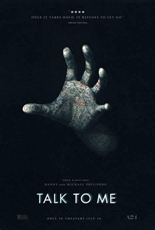
 Horror hasn’t needed a hand for the past decade. Thanks to the likes of It Follows, The Babadook, Hereditary and too many more to reasonably list, the genre has been recognized lately for what it’s always been: clever metaphors that speak to our experience. It’s just a little less exploitative now. And, by extension, a lot harder to get a foot in the door.
Horror hasn’t needed a hand for the past decade. Thanks to the likes of It Follows, The Babadook, Hereditary and too many more to reasonably list, the genre has been recognized lately for what it’s always been: clever metaphors that speak to our experience. It’s just a little less exploitative now. And, by extension, a lot harder to get a foot in the door.
Fortunately, Talk to Me from Danny and Michael Philippou (aka YouTubers RackaRacka) has pretty much nothing to do with feet. Still, despite exceptional acting and a refreshing take on possession, the film’s premise is spread too thin to be an instant classic.
As Mia (Sophie Wilde) grieves the death of her mother, her best friend, Jade (Alexandra Jensen), invites her to a party with their friendly neighborhood drug dealers. Naturally, this means Jade’s little brother (Joe Bird) tags along. Tragically, the gathering isn’t just a bunch of harmless Aussie teens doing whippets. Their drug of choice is instead an amputated, embalmed hand that lets a ghost possess anyone who holds it. The catch? Exposure to the hand for more than 90 seconds risks long-term possession.
Talk to Me shines in its possession sequences. The film showcases menace, perversion and everything else fucked-up from the great beyond in its first act. Powerful and involved performances ground this otherwise hokey jaunt through the backlog of vengeful spirits. Bird and Otis Dhanji stand out, the former becoming some kind of prophetic passenger from hell who’s eerily similar to Harvey Scrimshaw in The Witch.
Mia’s desperation and compulsion for the hand realistically carry the plot. Unfortunately, the film lets the rules of the hand overshadow an otherwise tragic and emotionally jarring arc. It doesn’t seem to realize its power comes from of its compelling cast of characters. Instead, Talk to Me backpedals into conventional approaches as soon as it loses anything more to say about addiction. To put it bluntly, it feels like the filmmakers understand addiction — maybe they even watched Requiem for a Dream — but they weren’t confident enough that it could sustain a full movie.
Instead, the Philippous lean hard into the franchise paint. Which mostly makes sense. It would be almost a shame not to explore the iconic hand in some other way, but that’s the beauty of a cursed object: You can move it into any number of situations and chances are, its presence alone is enough to justify what transpires. Instead, the protagonists can focus more on their very real, compelling problems, rather than how the thing — be it a monkey’s paw or a demonic puzzle box — connects to some ancient power.
Talk to Me is solid and its already announced sequel should be, too. Hopefully, the filmmakers will be more hands-off when it comes to the human drama already baked into the story. —Daniel Bokemper

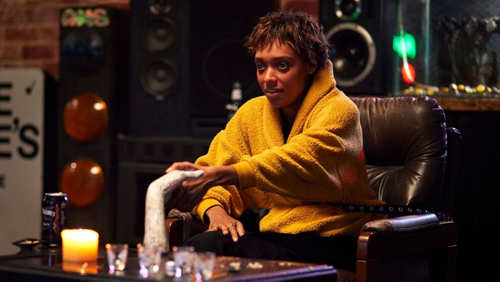
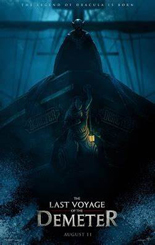
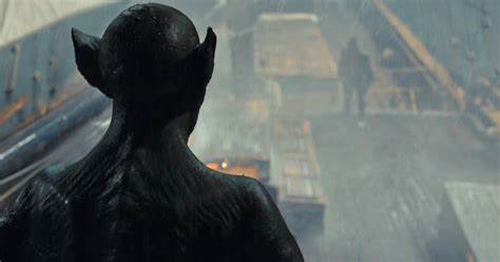


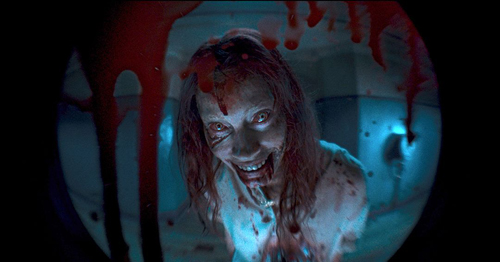
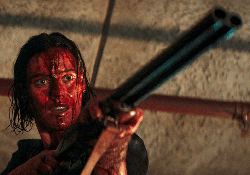 Most of the sequences capture the franchise’s frenetic pace despite the new setting. In lieu of a fruit cellar, Ellie spends a chunk of the film stalking the hallway outside her apartment. The unit door’s peephole sets the stage for a vivid bloodbath that makes the most of the movie’s limited budget. Continually, Evil Dead Rise delivers frights that far outclass movies like
Most of the sequences capture the franchise’s frenetic pace despite the new setting. In lieu of a fruit cellar, Ellie spends a chunk of the film stalking the hallway outside her apartment. The unit door’s peephole sets the stage for a vivid bloodbath that makes the most of the movie’s limited budget. Continually, Evil Dead Rise delivers frights that far outclass movies like 



